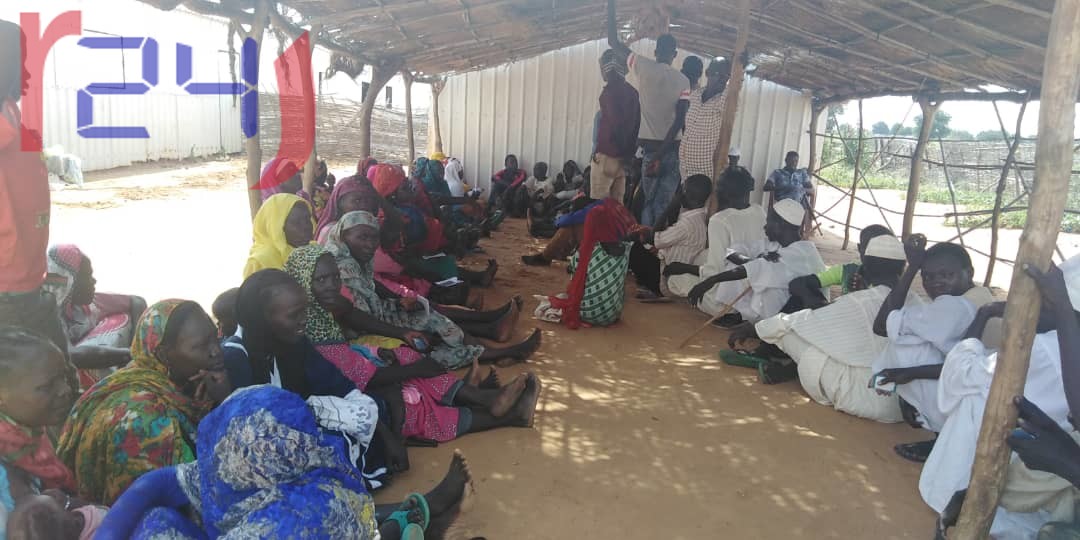April 5, 2020 (Eastern Chad) The issue of food in refugee camps in eastern Chad has become the biggest problem facing the impoverished and desperate refugees.
Fifteen months ago, humanitarian organizations working in Sudanese refugee camps in eastern Chad resorted to a new mechanism where they classified the refugees on an economic basis, as they divided them into three categories (rich, middle income and poor ).
Previously, food aid was provided to refugees in forms of rice, cowpea, flour, oil and sugar. But based on the new classification, not all refugees would be provided with food.
However, International support for humanitarian operations shirinked after the wave of “Arab Spring” revolutions, meanwhile several organizations complained of declining humanitarian support that have imposed new priorities around the world.
Given the fact that , achievement of a comprehensive peace in Sudan is faltered, the situation of refugees and internally displaced persons remained unchanged, no fisible voluntary return of refugee to their villages origin, except for very rare individual cases, due to the spread of weapons in the Darfur region and the absence of security.
The organizations that adopted the classification mechanism are trying to persuade the refugees to accept this new situation, but the new situation has been met with collective refusal. This classification has created tensions in some camps that have led to violence that has claimed some lives.
Refugees in eastern Chad believe that being a refugee is enough to be provided with food and non-food items, adding that there is no such a thing as rich and poor refugee. this new traumatic reality created many problems, such as malnutrition and anemia , especially among children and pregnant women .
” Majority of diseases in the camps are malnutrition and anemia and there is a lack of drug, while shortages of medical staff represents the most prominent problems facing health centers that are frequently visited by children and women” said Sherif Youssef, who works as a nurse in Kango refugee camp, in esatern Chad
After organizations stopped providing food and non-food items to some categories of refugee, women and girls from variuos refugee camps resorted to work in firewood collection and selling work, where the organizations were previously providing bussiness , and besides the use of firewood as a main source of cooking fuel, some women and girls earn a very small amount of money. It’s worth noting that during firewood collection trips, girls and women are constantly raped and numerous rape incidents have occurred , but there is no accurate statistics.
It’s to be noted that ,there are no sources of income for refugees except for modest attempts to generate money through exhausting daily work with little pay, and women are active in brick making and building work sometimes, but even these seasonal jobs are forcing workers to take a small amount of profits because they do not own the land.

